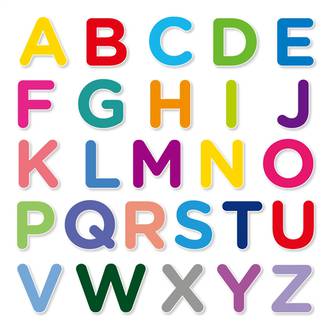Shop
01553
https://www.under5s.co.nz/shop/Hot+Topics+Articles/Toys+Books+Play/books+reading+and+writing/Teaching+preschoolers+the+alphabet+%26+letters.html
Teaching preschoolers the alphabet & letters
|
Being able to read is a vital life skill, so make the early stages of learning the alphabet as fun as possible for your preschooler. Preschoolers learn and develop best through using their whole body, all of their senses and their natural environments. You’ll find that most preschoolers begin to recognise letters when they’re about 2 to 3 years old, and are able to identify a large number of letters between 4 and 5 years old.
|
You might also be interested in ...
Tips on improving your kids listening skills
Do you sometimes struggle to get your kids to listen and pay attention to what you’re saying? Do you often feel frustrated or resort to raising your voice? Here are 4 quick ways you can encourage your kids to listen to you and help you restore your sanity!
Managing the arrival of a new sibling
All children react differently to the arrival of a new baby in the family, but there are ways you can help your toddler and pre-schooler to accept their new sibling and still feel special.
join usJoin us on social media for all our latest news. |
sign upSign up and receive our latest newsletters. |
|







Preschoolers learn and develop best through using their whole body, all of their senses and their natural environments.
You’ll find that most preschoolers begin to recognise letters when they’re about 2 to 3 years old, and are able to identify a large number of letters between 4 and 5 years old.
Teaching preschoolers the alphabet & letters
7 Activities for teaching preschoolers letters
Families and caregivers play an essential part in teaching early childhood literacy skills.
When teaching your preschooler a new letter of the alphabet, ensure that tthey can:
1. HEAR the letter
2. SEE the letter
3. SAY the letter
4. TOUCH the letter
5. CREATE the letter
6. WRITE the letter
7. READ the letter
7 Things to remember when teaching the alphabet & letters
1. Teach the sounds & names of the letters together
2. Teach lower case letters first
3. Teach a mixture of consonants and vowels
4. Read books aloud as often as you can
5. Read a variety of books
6. Talk about books
7. Help your preschooler to make different types of books
More kids learning articles to enjoy:
Source: Article written by Emma Loggenberg. Emma runs a company called Tuputupu Kids and has recently completed her Master Thesis in Educational Psychology. She also has a Graduate Diploma in Teaching and has completed advanced courses in Play Therapy.